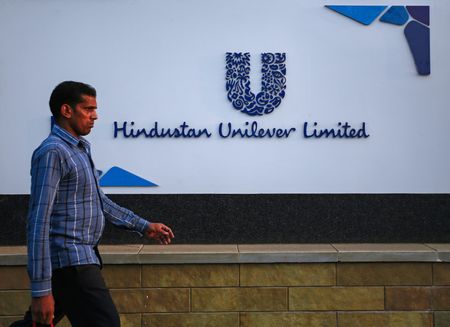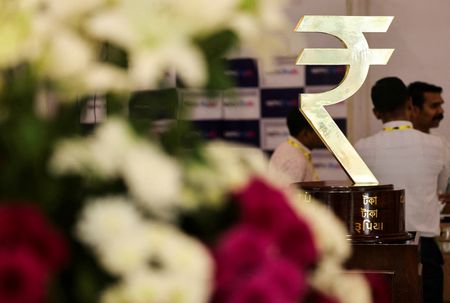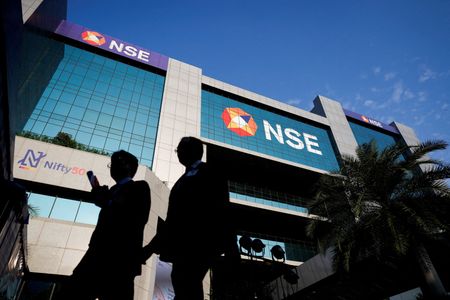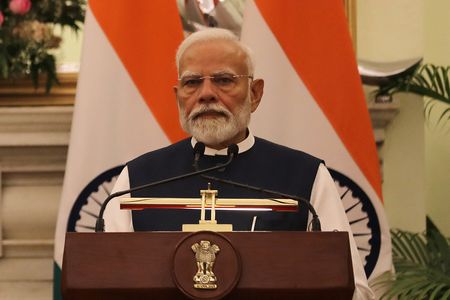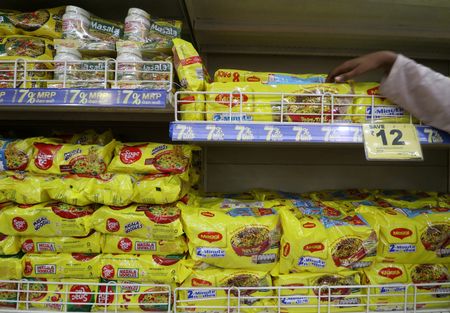By Shivani Tanna, Ananta Agarwal and Praveen Paramasivam
(Reuters) -India’s top consumer goods makers Hindustan Unilever (HUL) and Nestle India reported weaker fourth-quarter profits on Thursday, with HUL cutting its margin forecast amid high input costs and sluggish urban demand.
A surge in the cost of living and slow wage raises in India have eroded urban consumers’ purchasing power, forcing them to cut back on buying packaged goods and pressuring earnings of consumer goods makers already reeling from high input costs.
Both companies reported shrinking profit margins. Maggi instant noodles-maker Nestle India’s margin dropped to 16% from 18% in the previous year, according to a back-of-the-envelope calculation by Reuters, while Hindustan Unilever reported a 30-basis-point dip to 23.1%.
The Indian unit of UK’s Unilever will post core margins in a 22% to 23% range in the near- to mid-term, while boosting sales gradually on volume growth in the year beginning April 1, CFO Ritesh Tiwari told a press conference.
The projection is below its previously forecast range of 23% to 24%.
HUL appears to be prioritising volume growth and market share over margin expansion, indicating that consumer goods demand remains weak, Elara Capital analyst Amit Purohit said.
The stock was last trading down 3.8% at 2,331.4 rupees, wiping out nearly all its gains this year. On the day, it has lost the most in terms of percentage on the benchmark Nifty 50.
Nestle India, which lost 0.4% on the day, reported its quarterly profit fell 5.2% to 8.85 billion rupees, hit by higher prices of major commodities, including coffee and cocoa.
Its revenue growth slowed to 4% from a 9% growth a year earlier.
Meanwhile, HUL’s profit of 24.93 billion rupees ($291.15 million) narrowly missed market expectations of 24.98 billion rupees, according to data compiled by LSEG.
Its expenses rose 3% while revenue in its nutrition drinks and beauty products segments declined.
Looking ahead, HUL’s Tiwari said India’s tax relief measures and an easing of inflation set up Indian households to spend more both on essentials and discretionary goods.
In contrast, parent companies Nestle SA and Unilever beat sales estimates, led by price increases.
($1 = 85.6250 Indian rupees)
(Reporting by Praveen Paramasivam in Chennai and Shivani Tanna in Bengaluru; Editing by Janane Venkatraman)

